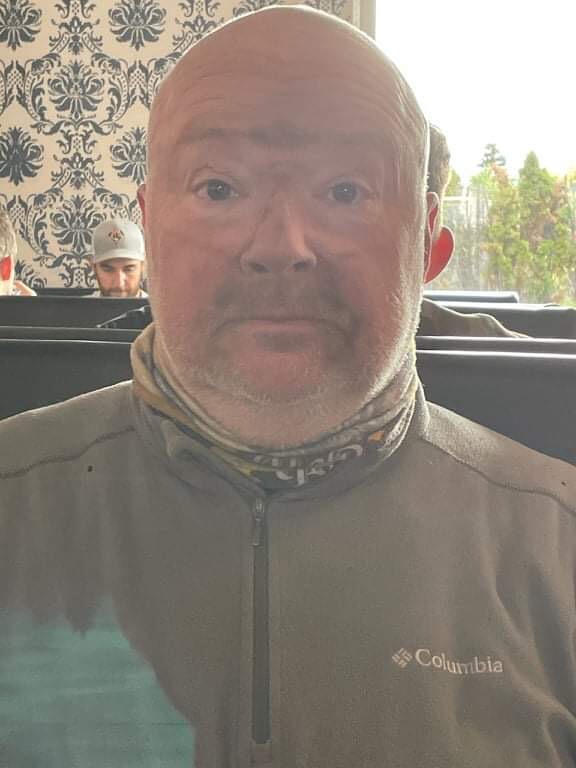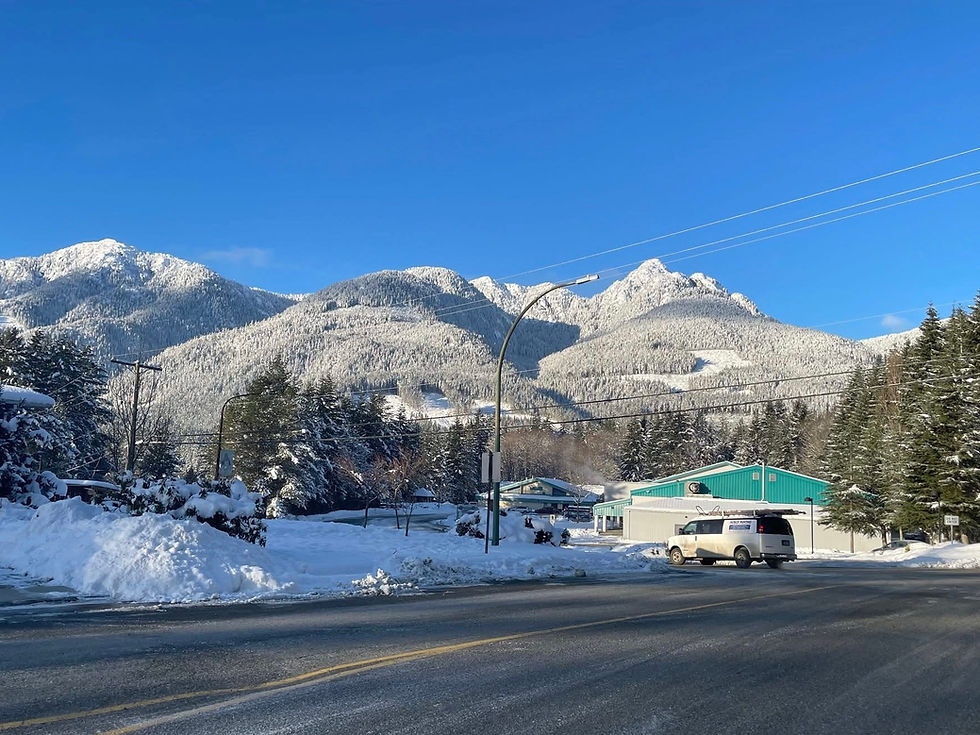Frequently Asked Questions - VIME, backcountry navigation trials and GoldRiver400.
- Jonathan Binnington
- Dec 19, 2023
- 6 min read

Q: "So what is this all about?"
A: VIME is Vancouver Island Motosports Events, the sole proprietorship business I have started through which to manage the motorcycle motorsport events I stage on Vancouver Island. The name says what it does on the tin, to coin a phrase.
"Backcountry Navigation Trials" is the descriptive name for the events that has evolved over the past few years, I'll expand on that in a little while.
VIME puts on two events per year, an autumn event that was based in Port Alberni in 2022 and '23 and a summer event based in Gold River, Strathcona. In 2022 it was the GoldRiver200, a two day event covering about 200 miles; this year it was the GoldRiver300, three days and rather more than 300 miles; next year it will be the GoldRiver400 (Les Chemins Sauvage) over four days and more than 800 miles!
Q: "Backcountry Navigation Trials???"
A: Yes, a portmanteau name to cover the fusion of the different motorsport genres into the finished product. I was introduced to backcountry motorcycling a few years ago on Vancouver Island, where I live. As I was developing my off-road riding skills on the forest service roads (FSRs) on the mid-island, I was looking at the scenery, taking in the experience and thinking "how could this be turned into an event?". Previously I have been involved with triathlön and club-level sports car racing as pit crew/support. I am not a driven competitor but I know many people enjoy the challenge of competition and I always have enjoyed being part of the show.
Q: "Fusion of different motorsport genres?"
A: Yes, it is hard not to notice the interest and excitement RallyRaid motorcycle events generate and they seem so "accessible" - especially if you watch too many YouTube videos! I began to work out what could be done with the resources, opportunities and limitations we have.
"Everyone" wants motorsport which is affordable, accessible, exciting - something that fits the "I could do that!" category. We live in a society that demands accountability, responsibility and transparency. How to construct something that is interesting, demanding, adventurous yet remains legal and reasonably safe? After all, unregulated racing on public roads will quickly get everyone thrown in jail!
We have
FSRs on approximately half the island that have the status of "public highway",
road legal trail, Dualsport and adventure motorcycles that are ridden with ICBC registration/insurance/licences,
The British Columbia motor vehicle legislation specifically outlaws racing on public roads but it does not outlaw "solo navigation trials".
Time Speed Distance regularity rallying is a recognised genre of motorsport, usually for the Car Club people, and is the mainstay of grassroots/road legal motorsport. It is not particularly transferable to motorcycle motorsport in the refined form the car people practice it but it is a basis for development.
Traditional rally motorsport has required a large number of timekeeping volunteers out on the course timing participants through checkpoints. It is not a very exciting job, but without timekeeping these events are nothing. GPS smartphone timing apps mean that every competitor carries their own timekeeper in their pocket - provided they remember to turn the damn thing on!!!
Smartphone and computer apps also plotting routes, writing and displaying roadbooks and the GPS system just mentioned for timing riders through virtual checkpoints.
Putting this all together we have
the routes, challenging gravel FSRs that are public highways which see little traffic,
information technology systems to prepare, publish and monitor progress of event participants over courses and
provided legal speeds are set and observed, a motorsport that meets legal requirements for motoring under the conditions of each participant's driving licence and ICBC insurance.
On this basis, there is no involvement of Governing Bodies, competition licences, event sanctions or any of the officialdom that goes with many other genres of motorsport.
Q: "So it is not racing?"
A: It is absolutely not racing! It's not Rallyraid either....
Riders tackle the event as solo riders, starting at one, two or three minute intervals.
There are probably three challenges to this genre of motosport.
Firstly, riding the bike over challenging terrain. Not in the trials or hard enduro meaning of challenging, though! A moderately competent rider can expect to complete a day's ride without having to pick the bike up, but in exchange for "do-ableness" the distances to be covered each day can be in excess of two hundred miles/300km.
Secondly, the route is given in a rally-style roadbook. A long sequential list of left/right/straight on tulip diagrams. Forget everything you knew about reading maps! Roadbooks have to be followed line-by-line, taking note of distances, compass bearings and road junction directions. Miss a line and suddenly everything no longer makes sense... you have to backtrack to the last point you know you were correct, reset your trip meter and go again. If you make a total hash of it you can always retire, start your gps mapping app and head for the pub!
Thirdly, to add in the element of competition, the route is divided into a number of "legs", each of which have an arbitary average speed target. There is a GPS virtual timing gate at the start and end of each leg and a target time that corresponds to the length of that leg and the set speed. Hence Time/Speed/Distance. To make things yet more testing, the exact position of the GPS gates is often hidden to dissuade enterprising competitors from gaming the timing system by speeding in the leg then lurking just short of the gate while the timing clock runs down. Often the end gate of one leg serves as the start gate for the next leg. The consequence of this is if a rider makes a total hash of one leg, lost time cannot be made up by speeding in subsequent legs. There is no incentive to break speed limits.
Time penalty points are awarded by the timing system for early or late arrival at the timing gates and the winner is the rider with the least total of time penalties. On a multi-day event the results from each day are totaled to give a final result.
National and International events are increasingly using a Satellite tracking system called RallyComp to monitor event participants. Not only is RallyComp expensive, it requires very specific mounting and power supply hardware that entirely misses the point of having an entry-level motorsport genre.
Q: "So what do I need to participate in one of these events?"
A: Well aside from a registered and insured cross-country motorcycle and a driving licence to go with it, the only necessary equipment is two smartphones, preferably iPhones, relatively recent ones with GPS chips. No SIM cards are needed. You run the phones as mini-tablets and download whatever you need over wifi or hotspot.
One phone displays the roadbook as a pdf on the Rally Roadbook Reader app that doubles up as your clock/GPS odometer/GPS speedometer. Your other phone runs Richta Competitor, the GPS timing app. You need two phones because both apps need constant, uninterrupted access to the GPS chip.
Secondhand smartphones often have a degraded battery performance but even a new phone wouldn't have the battery life to remain on and working for a whole day. The solution is to wire in to your bike's electrical system a usb charging socket and continuously charge the phones.
You can go old school and print the roadbook pdf, sellotape all the pages together and load the scroll into a scroll reader but there is no advantage to doing it on paper - and if the weather gets into your scroll reader box the paper tears, the sellotape looses its stick and the ink runs....
Q: "Where do these events happen?"
A: Crown land Forest Service Roads. Care is taken to keep off Mosaic roads and lands which means the events are run through the forests of the northern half of Vancouver Island, north of Highway 28, the Gold River highway from Campbell River. Provided we keep to the roads, staying off the horse trails, hiking routes and Parks we have a clear run. No gates, no trespassing, no permissions required.
Gold River, Sayward Junction and Woss have fuel stations and cell phone service so these places are our centres of activity.
Q: "How do I sign up?"
A: The VIME website has a blog section (where we are now) and a Shop section. Entries to the events are on the Shop page, they are products that can be bought by credit card.
Entries for the GoldRiver400 - Les Chemins Sauvage is https://www.gr200.com/product-page/goldriver400-les-chemins-sauvage
Entries for the Sayward September Showcase is https://www.gr200.com/product-page/sayward-september-showcase-a-dualsport-navigation-duel
Q: "And finally, why Les Chemins Sauvage?"
A: I try hard not to take myself too seriously.... I have seen that the organiser of some other events have given them exotic, foreign names so I let my (modest) imagination run away with itself!
























Comments